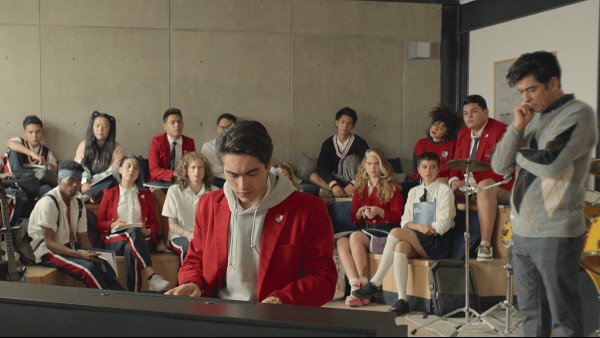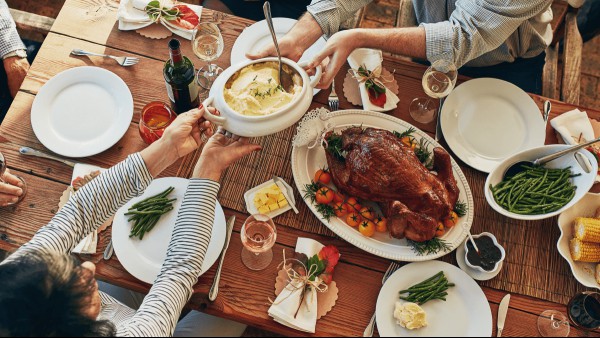English is a mishmash of a language — it’s the product of many cultures clashing on the British Isles for over 1,000 years, followed by an empire spread around the globe. One of the biggest influencers came from France in 1066 during the Norman Conquest. William the Conqueror’s military victories instituted a French-speaking aristocracy in England (and French remained the official language for the next 400 years). Now many native speakers recognize French words in English when they see them, but few know their true original meanings. Let’s take a tour of the broad world of English words that are actually French.
French Words In English With Surprising Origins
Did you know that etiquette originated in the French Court of Louis XIV at Versailles? A number of étiquettes (little cards) were used by courtiers to remember all the little nit-picky rules they needed to abide by while at court. The word’s meaning gradually morphed into “how to conduct oneself properly in polite society.”
And did you know that sabotage originated from the French word sabot, which is a kind of wooden clog worn by French and Breton peasants? As industrialization swept Europe, disgruntled peasants soon discovered that a sabot, when thrown into machinery, was very effective at bringing much-maligned factories to a halt.
Going to the dentist? Why not simply say “toother” and be done with it? Because that’s what it means: “tooth” in French is dent, and the dentist is a “toother,” a professional who takes care of your pearly whites.
You love saving coupons for a discount? The word literally means “piece cut off,” since couper is “to cut” in French.
You’re hooked on crochet? Of course you are — it means “little hook” in French. You could crochet a rectangle (“straight angle”) depicting a scene from a renaissance (“rebirth”) painting while you wait for your soufflé (“blown”) to get properly light and fluffy in the oven.
Brimming with ideas for crochet patterns? Create a dossier (a bundle of papers with a label on the back, from the French dos, meaning “back”) to organize all those creative ideas. And take a break — your guests are arriving, and it would be a faux-pas (false step) to not have the table set. Prepare the hors d’oeuvre (literally “outside the work”) and fully embrace your role (from rôle, the “roll” of paper containing an actor’s part) as a gracious host for this rendezvous (literally “present yourselves”).
The guests arrive and Jonathan has brought his ouija board. While everyone nibbles and drinks, he clears a small table in the corner, and everyone gathers for a séance (“sitting”) to attempt to contact the dead. An angry spirit replies and suddenly a vase explodes! The debris (from the obsolete débriser, “to break down”) is scattered all over the floor. And the souflé also exploded! It’s a mess, so everyone decides to go to a restaurant (literally “to restore with food”) instead. Contacting the dead can be risky — it’s like playing roulette (“little wheel”).
There is a queue (“tail”) to get into the restaurant, but an ambulance (“walking hospital”) arrives and the crowd parts. According to the maître d (short for maître d’hôtel, “master of hotel,” the host), there was a fight inside, and the debacle (literally “unleash”) has closed the restaurant. Everyone decided to go home, but Jonathan suggested a detour (“change of direction”) to a food truck serving delicious falafels.
It seems Jonathan ruined and saved the night! But who can be mad at him? He knows how to amuse (“entertain”) and maneuver (literally “to operate with the hand”) himself out of difficulties with such… what’s the word? Ah, yes — panache! It literally means the “feather” worn on a hat or a helmet. This usage originated with King Henry IV of France, who was a courageous military leader with a love for the finer things. He wore a white plume on his helmet and was famed for his war cry: “Follow my white plume!” (Ralliez-vous à mon panache blanc !)
So don’t be shy when using French words in English. They add elan (from élancer, “to dart”) to your speech and make you stand out from the crowd. Don’t camouflage yourself (from camouflet, “a whiff of smoke in the face”), and be chic (a French word of obscure origin, but that might originate from the German Schick, which means “skill”)!
A few more examples:
- avant-garde: literally “front guard”
- envoy: from the french envoyer, which means “to send.” That gives new meaning to envelope as well, doesn’t it?
- parachute: from French para (protection against) + chute (fall)
- pioneer: a military term denoting a member of the infantry from the French pionnier (foot soldier) who was always at the front










